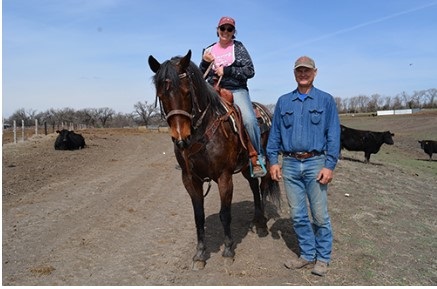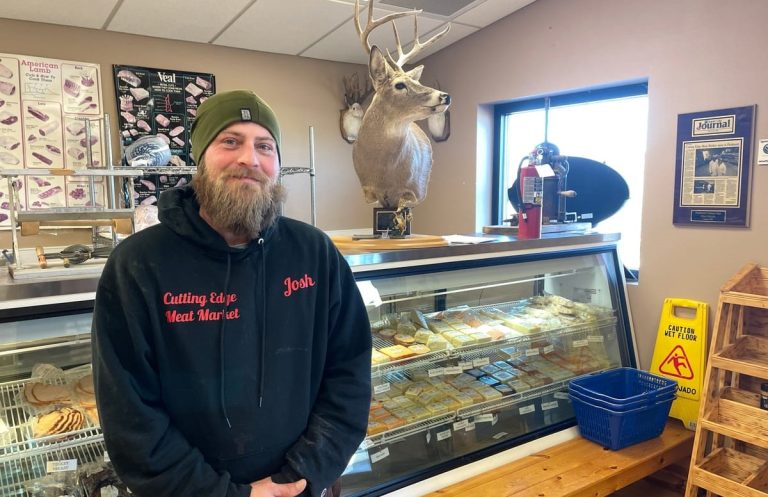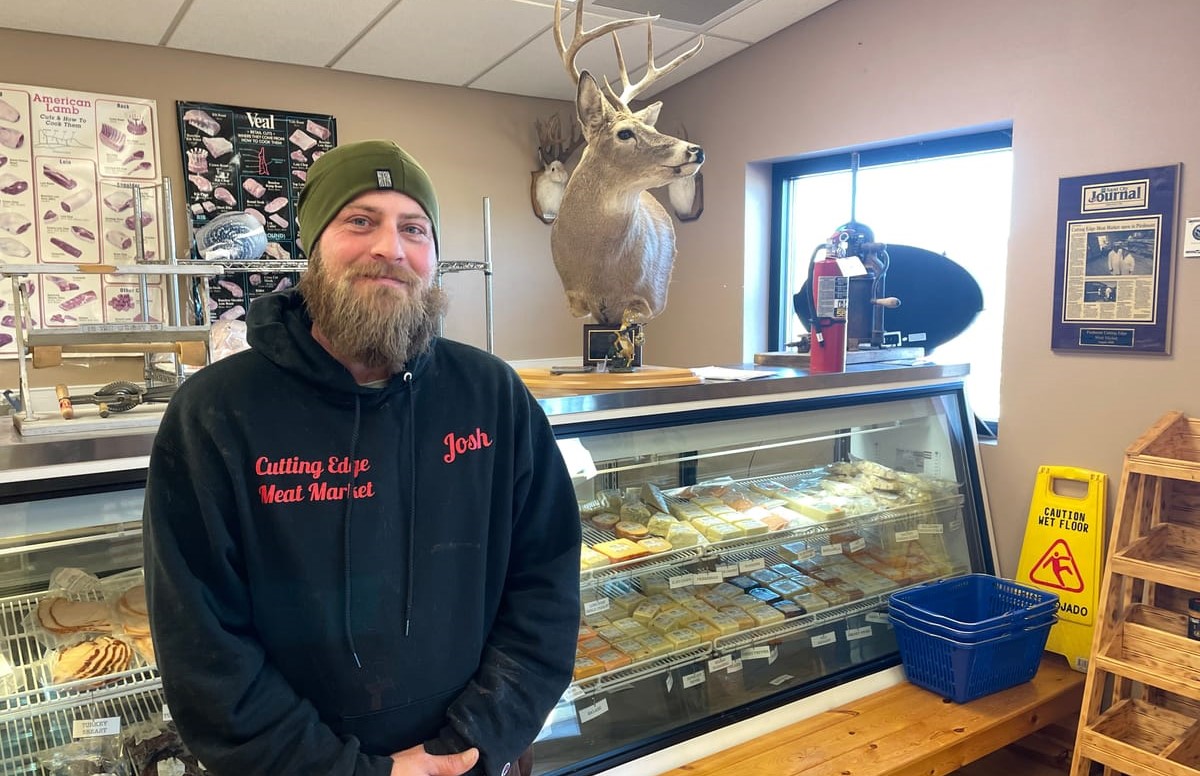UNDATED – South Dakota cattle producers shared personal stories of anticompetitive practices and the Department of Justice listened.
“Eyes were wide open and notepads came out,” explained a South Dakota cattle producer. “The Assistant Attorney General stayed way longer than scheduled and the staff continued to ask questions.”
“They were totally shocked,” added Oren Lesmeister, a Parade rancher and District 28A Representative. “They had no idea the market manipulation was this bad.”
Most producers’ names have been left out of this article to protect them from retaliation. The cattle producers quoted above were among a group of cattle producers from South Dakota who joined with producers from across the U.S. to meet with the Justice Department’s (DOJ) Antitrust Division Sept. 12 during the 2022 National Farmers Union D.C. Fly-In.
Cattle producers shared firsthand stories of open collusion: A single buyer at an auction market, purchasing cattle for multiple packing houses and cattle buyers riding in the same vehicle to sales, comparing notes and taking turns bidding on cattle.
“They were genuinely interested in what we had to say,” said a South Dakota cattle producer. “The aides said they knew the problem exists, but they needed real-world examples. I am encouraged.”
“Encouraged,” is a sentiment shared by all the South Dakota producers who attended the meeting, said Doug Sombke, a Conde farmer and President of South Dakota Farmers Union. “For decades, we have been advocating for the DOJ to hold the big four accountable by enforcing the Packers and Stockyards Act. I am encouraged that after this meeting, it may actually happen.”
Sombke’s thoughts were affirmed by a September 13 article released by Assistant Attorney General Jonathan Kanter’s office:
The Department is committed to fighting for fairness in food systems and protecting American farmers, producers, workers, and consumers from the effects of consolidation throughout the food supply chain.
The meeting builds on the Division’s ramped up efforts to combat anticompetitive practices and advocate for competition in agricultural markets. The Division has brought all of its tools to bear. Over the last year, the Antitrust Division has put special focus on competition in agriculture, including by suing to block U.S. Sugar from acquiring its rival, Imperial Sugar Company.
“Competition in agriculture is critical. Too often, farmers and livestock producers have too few suppliers to buy from and too few buyers to sell to. Farmers and their families work incredibly hard and deserve to see the fruits of their labor and the American dream,” said Assistant Attorney General Jonathan Kanter of the Justice Department’s Antitrust Division. “Yesterday, we heard from farmers about how monopolies, collusion, and other anticompetitive conduct threatens their livelihood and their communities. Protecting competition and the rule of law in agricultural markets is core to the work of the Antitrust Division, and we will vigorously enforce the antitrust laws in this area.”
In addition, this summer, the Division filed a civil antitrust lawsuit against a data consulting firm and its president, as well as three poultry processors, to end a long-running conspiracy to exchange information about wages and benefits for poultry processing plant workers. The proposed consent decree with defendant poultry processors Cargill, Sanderson Farms and Wayne Farms would prohibit them from sharing competitively sensitive information about poultry.
This effort–in cooperation with the USDA–built on other interagency partnerships with the USDA, including the Farmer Fairness reporting portal, which allows farmers and ranchers to report anticompetitive practices online. Find a link to this news release by reading this article online at www.sdfu.org.
The release urged anyone with information on anticompetitive activities to report them at farmerfairness.gov, [email protected] or call 1-888-647-3258.
Sombke said Farmers Union will continue its work to hold packers accountable by encouraging officials to enforce laws currently in place as part of the Packers and Stockyards Act.
“We will continue to work with the officials we met during our time in D.C. to make sure our cattle producers can sell into fair markets,” Sombke said.












